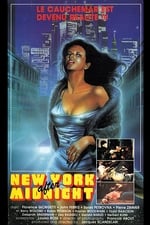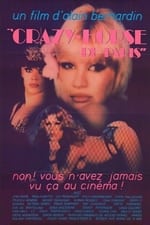Informations personnelles
Célèbre pour Son
Apparitions connues 7
Genre Homme
Artiste de contenu pour adultes True
Date de naissance 4 juillet 1947
Date de décès 15 novembre 1991 (44 ans)
Lieu de naissance Paris, France
Alias
- -
Score de contenu
100
Superbe ! Cette fiche semble complète !
Connectez-vous afin de
signaler un problème.
Biographie
Jacques Morali (4 July 1947 – 15 November 1991) was a French disco and dance music record producer and songwriter, known for creating acts like The Ritchie Family and Village People.
Morali was born in Casablanca, Morocco. He may have had Jewish ancestry.
Morali made his start in the music business at the end of the 1960s, writing music for orchestras in Paris, for the Crazy Horse, for himself as a solo artist (he played in 1967 show "Elle aime, elle n'aime pas" and released a single of the same title) but also for performers like Peter Fersen. Viva Zapata (Venus VS-71451), one of his first French productions, was sung by "Clint Farwood" - a pseudonym for a member of King Harvest. In the early 1970s, Morali met French music producer Henri Belolo. But he thought quickly that his success in France was not as great as expected and decided to try his luck in North America. Through meeting José Eber, Elizabeth Taylor and Cher's hairdresser, he became familiar with Philadelphia International Records. At the time, Morali proposed several projects to Belolo without convincing him.
In 1975, Morali told Belolo about his intention to adapt the Brazilian song "Brazil" from a musical starring Carmen Miranda. The idea was to make an epic record for the clubs, sung by larger-than-life female singers. Seduced by the idea, Belolo agreed to finance a long-lasting Morali residency at Sigma Sound Studios in Philadelphia. That was the start of their collaboration. They cast three girls (Cheryl Jacks, Cassandra Wooten and Gwendolyn Oliver) and named the band The Ritchie Family. "Brazil" was a solid success, the first of many that made them long-term partners ("The Best Disco In Town" (1976), "Life Is Music" (1977), "African Queens" (1977), "Quiet Village" (1977) & "American Generation" (1978)), both as creator and author, on top of also being writer and editor (Black Scorpio Publishing).
While in New York, Morali attended a costume ball at "Les Mouches", a gay disco in Greenwich Village. As he gazed around the room, he was impressed by all the "macho male stereotypes" portrayed by the party guests. The idea came to him to put together a group of singers and dancers, each one playing a different gay fantasy figure. At first, Belolo was not involved in this project, but when he saw that Morali had succeeded in signing a licensing deal with Casablanca Records (one of the more famous disco labels), Belolo decided to become his close sidekick on the project. The Village People's songs include "San Francisco (You've Got Me)" (1977), "YMCA" (1978), "Macho Man" (1978), "In the Navy" (1979), "Go West" (1980) and "Sex Over the Phone" (1985) and they became one of the more successful acts of the disco era with their flamboyant concept albums. ...
Source: Article "Jacques Morali" de Wikipédia en français, soumis à la licence CC-BY-SA 3.0.
Jacques Morali (4 July 1947 – 15 November 1991) was a French disco and dance music record producer and songwriter, known for creating acts like The Ritchie Family and Village People.
Morali was born in Casablanca, Morocco. He may have had Jewish ancestry.
Morali made his start in the music business at the end of the 1960s, writing music for orchestras in Paris, for the Crazy Horse, for himself as a solo artist (he played in 1967 show "Elle aime, elle n'aime pas" and released a single of the same title) but also for performers like Peter Fersen. Viva Zapata (Venus VS-71451), one of his first French productions, was sung by "Clint Farwood" - a pseudonym for a member of King Harvest. In the early 1970s, Morali met French music producer Henri Belolo. But he thought quickly that his success in France was not as great as expected and decided to try his luck in North America. Through meeting José Eber, Elizabeth Taylor and Cher's hairdresser, he became familiar with Philadelphia International Records. At the time, Morali proposed several projects to Belolo without convincing him.
In 1975, Morali told Belolo about his intention to adapt the Brazilian song "Brazil" from a musical starring Carmen Miranda. The idea was to make an epic record for the clubs, sung by larger-than-life female singers. Seduced by the idea, Belolo agreed to finance a long-lasting Morali residency at Sigma Sound Studios in Philadelphia. That was the start of their collaboration. They cast three girls (Cheryl Jacks, Cassandra Wooten and Gwendolyn Oliver) and named the band The Ritchie Family. "Brazil" was a solid success, the first of many that made them long-term partners ("The Best Disco In Town" (1976), "Life Is Music" (1977), "African Queens" (1977), "Quiet Village" (1977) & "American Generation" (1978)), both as creator and author, on top of also being writer and editor (Black Scorpio Publishing).
While in New York, Morali attended a costume ball at "Les Mouches", a gay disco in Greenwich Village. As he gazed around the room, he was impressed by all the "macho male stereotypes" portrayed by the party guests. The idea came to him to put together a group of singers and dancers, each one playing a different gay fantasy figure. At first, Belolo was not involved in this project, but when he saw that Morali had succeeded in signing a licensing deal with Casablanca Records (one of the more famous disco labels), Belolo decided to become his close sidekick on the project. The Village People's songs include "San Francisco (You've Got Me)" (1977), "YMCA" (1978), "Macho Man" (1978), "In the Navy" (1979), "Go West" (1980) and "Sex Over the Phone" (1985) and they became one of the more successful acts of the disco era with their flamboyant concept albums. ...
Source: Article "Jacques Morali" de Wikipédia en français, soumis à la licence CC-BY-SA 3.0.
Son
|
||||||
|
||||||
|
Interprétation
|
||||||
|
Production
|




